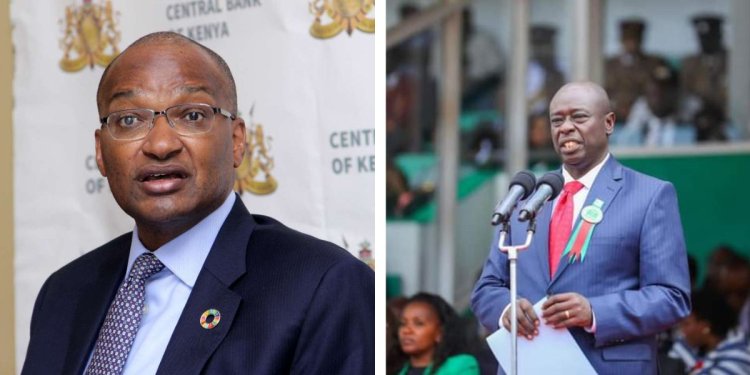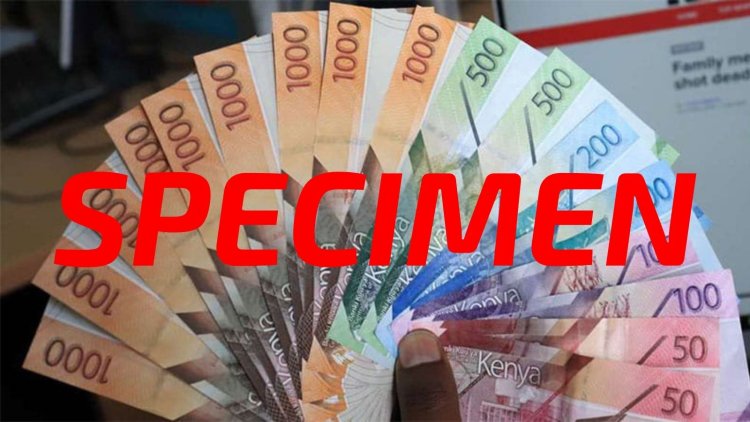CBK Annoyed By Gachagua's Comments On Citizen TV
The foreign exchange market is a global decentralized or over-the-counter market for the trading of currencies.

The Central Bank of Kenya (CBK) has denounced claims made by Deputy President Rigathi Gachagua who revealed that the government lacked foreign exchange reserves to supplement Kenya's importation of fuel.
CBK corrected the second in command in a statement on Sunday, October 2 by making it clear that it does not control forex exchange for commercial banks and that it only controls forex exchange for the national government and its operations.
The foreign exchange market is a global decentralized or over-the-counter market for the trading of currencies. It determines foreign exchange rates for every currency and includes all aspects of buying, selling and exchanging currencies at current or determined prices.

A forex exchange graph. /FILE
Gachagua argued that some political leaders had contributed to the deficiency in foreign exchange reserves to facilitate the importation of oil, a matter which forced oil importers to be surcharged while buying oil due to high foreign exchange rates, a matter affecting the fuel prices in the country.
“The Central Bank of Kenya (CBK) notes the comments by the Deputy President, His Excellency Rigathi Gachagua, in an interview on Citizen Television (Kenya) on October 2, 2022, CBK would like to provide the correct position regarding where oil importers obtain the requisite foreign exchange, and about the adequacy of CBK's foreign exchange cover,” the statement read in part.
“First, following the complete liberalization of the foreign exchange market in the 1990s, all foreign exchange for private transactions is obtained from commercial banks. CBK does not supply foreign exchange for transactions other than for the National Government (ie., the government's own imports or debt service payments) or CBK's operations. Oil importers, therefore, obtain their requisite foreign exchange from the commercial banks and not CBK.”
Amidst speculation that the reserve has run dry, CBK assured that its foreign exchange cover is sustainable.
“Second, CBK's foreign exchange cover remains adequate. The CBK foreign exchange reserves, therefore, continue to provide adequate cover and a buffer against shocks in the foreign exchange market," added CBK.
Gachagua stated that the Kenya Kwanza administration had promised to address state capture, which had affected the prices of fuel across the country.
"Why there is forex exchange problem is because of state capture. There was a lot of interest in banks where very senior government people own certain banks and they got involved in this forex business. Central Bank so no longer in charge," he said.
The depreciation of the shilling as a result of both internal and external shocks to the economy was reported to have contributed to a decline in purchasing power. Inflation has averaged 6.2 per cent in the last 10 years.
As of August, the shilling dropped by 38 per cent in the past decade, the equivalent of shedding 33 units against the dollar to exchange at 118.90 units.







